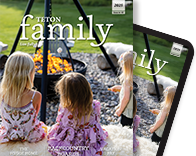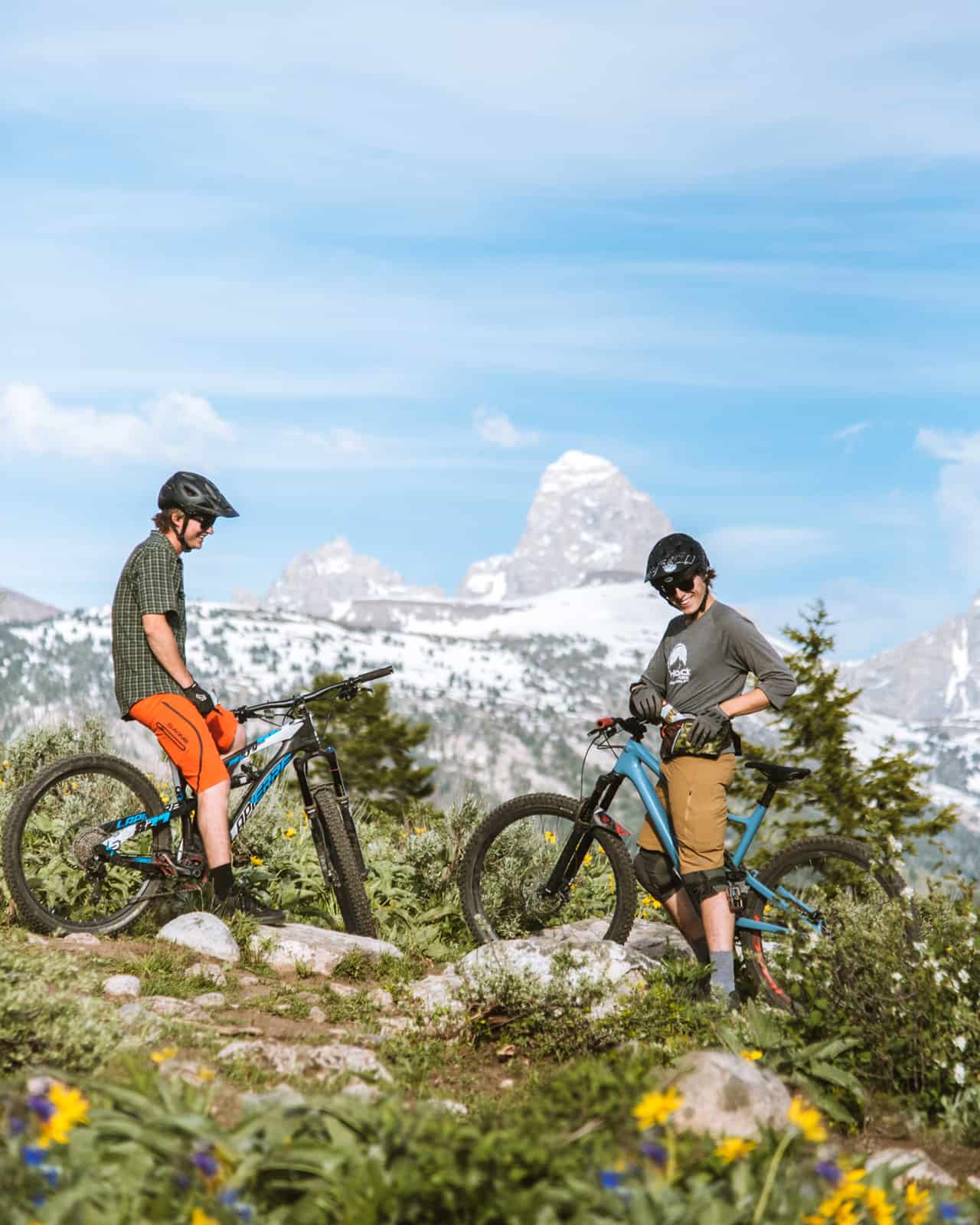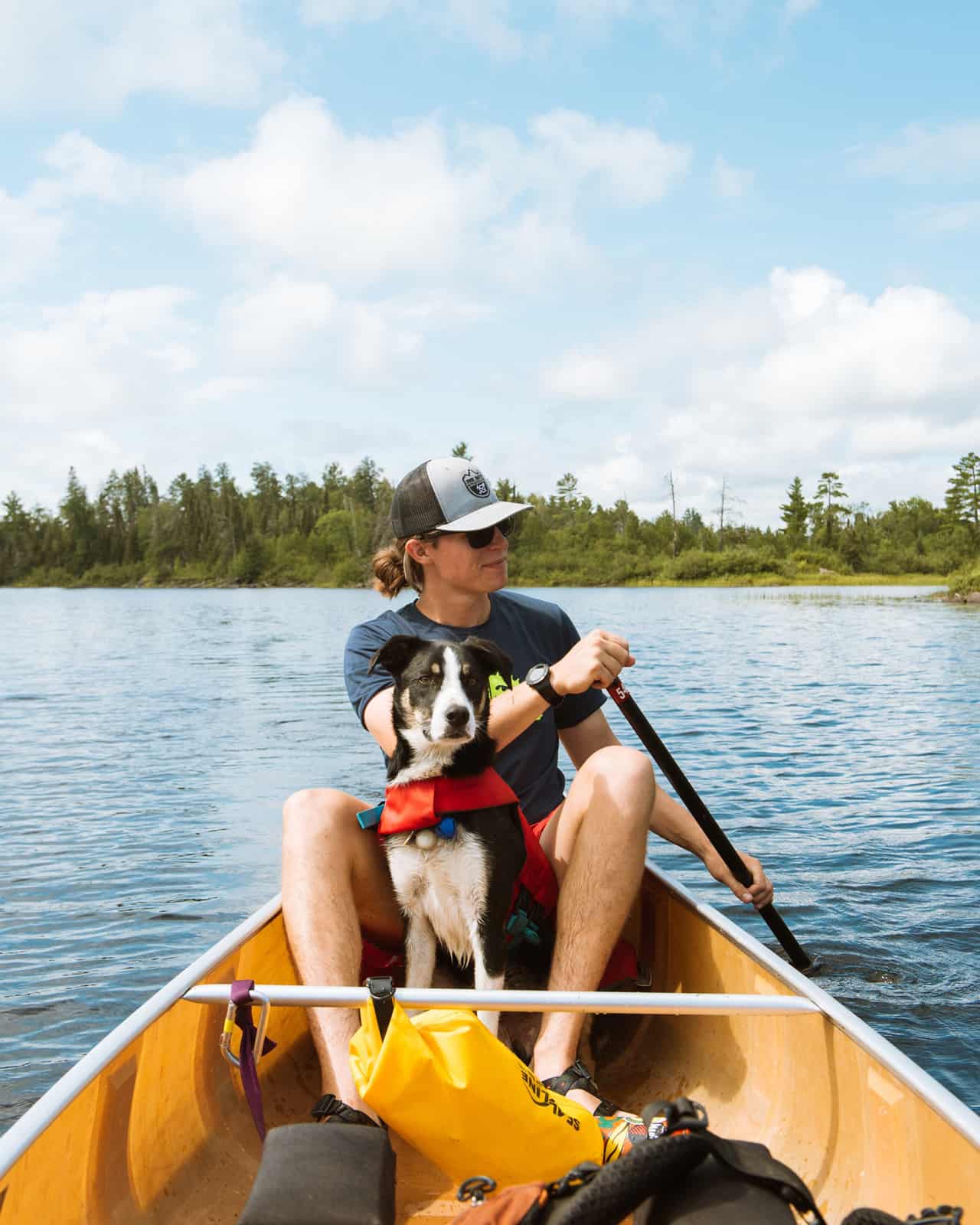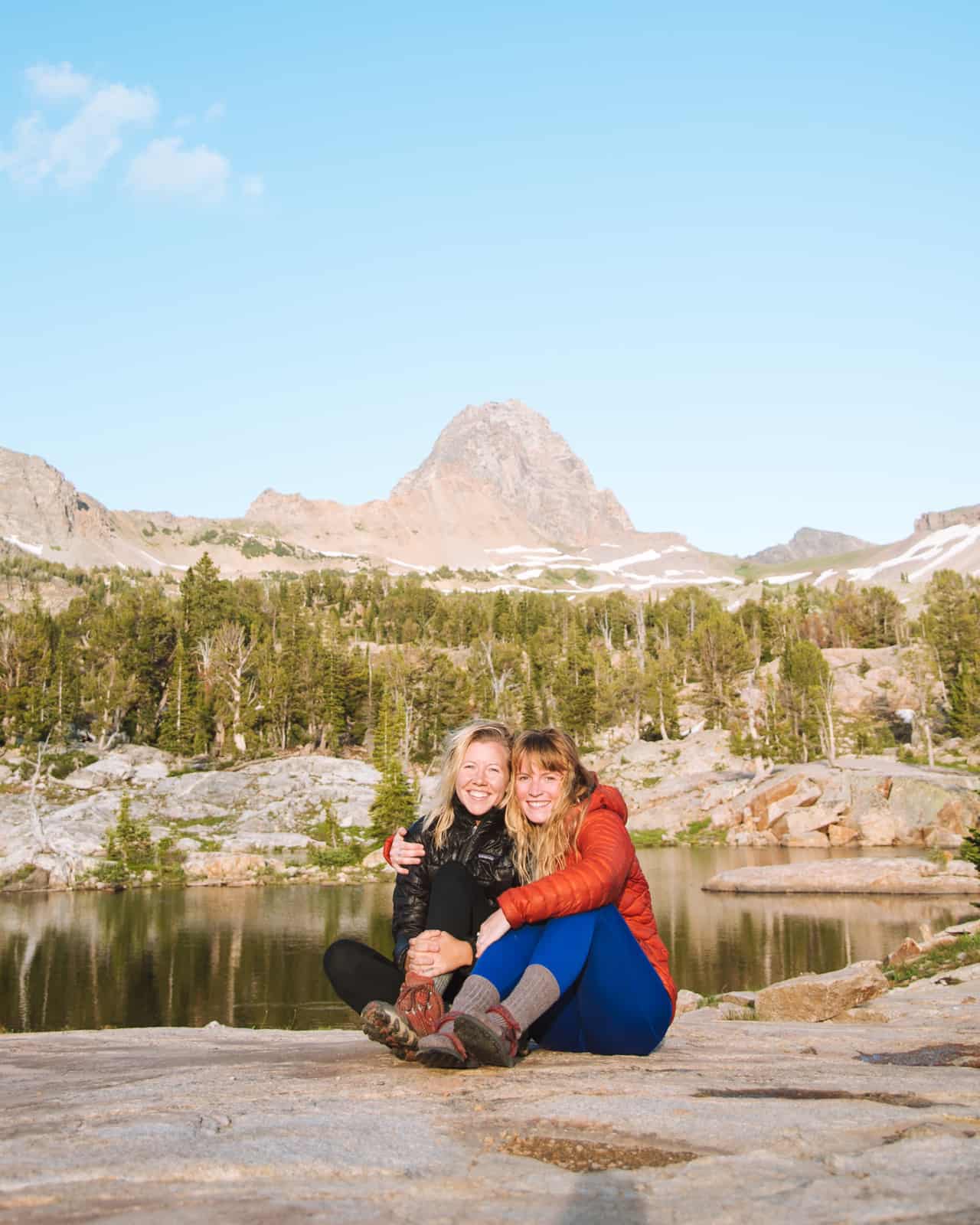By Samantha Simma // Photography by Katie Cooney
—
The mountains, valleys, and rivers of our region attract a myriad of individuals from all walks of life due to the recreational opportunities our landscape provides. It’s this shared pursuit of outdoor passions that grants our community a thread of commonality, and the passions we share with those around us cultivate our relationships, both romantic and platonic.
But what happens when you and your partner have passions that differ?
While we all aim for a sense of fulfillment by sharing our outdoor adventures with our partner, due to the diversity of activities available in the area, it’s unlikely we’ll align on each and every one (both in terms of level-of-interest and skill). But, this doesn’t have to be an end-all-be-all for your relationship; rather, it should be viewed as a crucial component to maintaining your individuality within your partnership.
Allison Arthur and Brian Upesleja, of Jackson, own two businesses—Arthur owns Dishing Magazine, while Upesleja operates a local painting and contracting business. From opposite ends of the country (Arthur is from South Carolina and Upesleja’s from Alaska), the two originally met during an open hockey skate at Snow King Sports & Event Center. This shared interest in hockey makes winters easy for them, with pick-up games and co-ed tournaments dominating their social calendars. The summers, however, provide a seasonal twist for their relationship. When the weather warms, Upesleja would rather be on a boat with a fishing pole, while Arthur’s preference is to be on land, hiking or mountain biking.
Ditch the Equity Mindset
Leah Black, as a licensed clinical social worker at Jackson Hole Mental Health, helps her clients overcome such relationship hurdles, and, in doing so, finds that couples in these predicaments ultimately achieve more fulfilling lives, both individually and as a unit. Her first approach is to encourage individuals to get away from the equity mindset.
“The tendency to want everything to be fair is really strong, and that’s a losing proposition,” Black says. “I advise couples to empower their partner to do what they need to feel balanced, and come at it with the attitude of ‘I want you to be happy and get to do the things that you love.’ Things may not be 100 percent even, but if both partners come at it with that attitude, then their own needs get met.”
Arthur and Upesleja, married for twelve years, confront the issue of equitability often due to the time investment required of each of their hobbies—fishing can consume an entire day, while a mountain bike outing might only eat up a few hours. Their solution resides on both compromise and coordination.
“As the summer goes on, it gets harder to connect,” Arthur admits. “We need to be able to do things as a married couple to stay in tune. So, we’ll plan camping trips where I can take the paddle board and he can fish.”
In return, Upesleja will hop on a mountain bike once or twice a year. But when the itch to do the things they love respectively intensifies, they’ll coordinate schedules to spend some time apart. Arthur travels for work periodically, so they’ll plan a weekend together before her departure, and then Upesleja will plan on fishing while she’s away.
“It’s key that you both get to do something you enjoy,” says Upesleja. “So, you’re not just dragging each other along—down the river or up Munger Mountain.”
Share Your Slice of the Pie
Another tactic Black suggests is to conceptualize a life-balance pie chart, dividing the chart into the areas of life that require your time and attention.
“Maybe you have a slice of your pie that’s your role as a spouse, and then a slice for recreation, a work slice, and maybe even a spiritual slice,” says Black.
In the instances where a couple have different recreational pursuits, it’s important to separate the recreation and relationship slices of life. In that vein, when you’re participating in a recreational activity that’s more intrinsically fulfilling for your partner than yourself, frame your mindset to think of that time as an investment in your relationship, rather than recreation.
“If I go downhill skiing with my husband because it’s what he really loves to do [while I don’t really enjoy downhill skiing], I can view it as, ‘This is time that I’m devoting to improving our relationship and being a good partner,’” says Black. “This feels much more satisfying.”

Celebrate Your Differences
Katie Cooney and Nick Sheahan, her partner of nearly six years, experienced the strain of their differing interests when they moved to Teton Valley, Idaho. Cooney is a photographer and artist, while Sheahan is a retail buyer for Jackson Hole Mountain Resort. Sheahan was the first to migrate west, while Cooney finished up school. When they were reunited (after having a long-distance relationship) Cooney recalls, “We were overly attached at the hip and trying to do everything together, not nurturing our individual interests.”
Both active and artistic, their activities of choice differ in the following ways: Cooney is an avid hiker, backpacker, gardener, and artist; Sheahan enjoys hunting, fly fishing, and woodworking. While they both enjoy mountain biking, Cooney admits that their skill level creates a divide, with Sheahan being more advanced.
“Sometimes, he needs to just go for a ride on his own to get better exercise and not feel like he’s slowing down to wait for me,” says Cooney. “I’ve learned that one backpacking trip will keep me fueled for the whole year. When we take time to do some things separately, then we are both happier and more present when we spend time together.”
Of course, Cooney reminds us that it’s worth finding friends outside of our intimate relationships to share our interests with. “Spending time with other partners in your life, whether it’s a best friend or group of people, can be just as fulfilling and important as the time spent with your partner,” she says, noting that being able to separate your interests in a healthy and positive way makes you avoid feelings of bitterness and, ultimately, makes you happier inside and outside your relationship.
Black explains that our personalities and recreational interests are very much intertwined. Personalities often determine the recreational pursuits we’re interested in, making the person we love very much a product of their outdoor passions.
So, before you balk at your differences, she points out, “Differences in recreational interests can keep your relationships interesting. When your partner is very passionate about something, it can be a very attractive quality. Even if you don’t appreciate their activity, often you can appreciate their passion, motivation, and expertise in the sport.”



